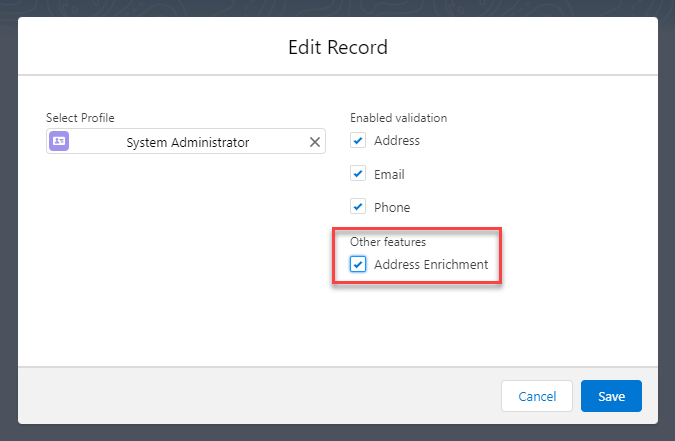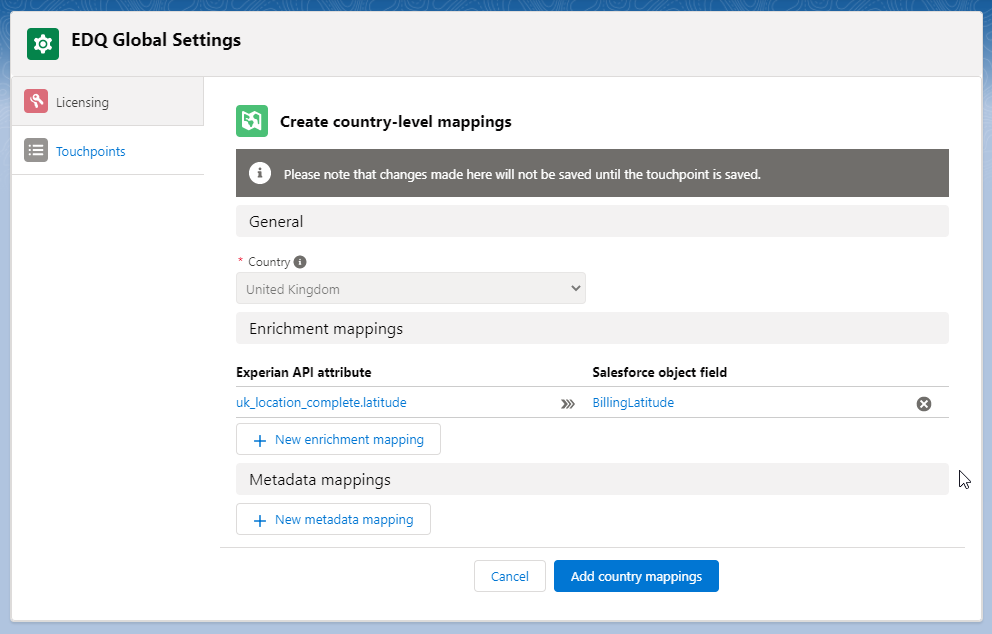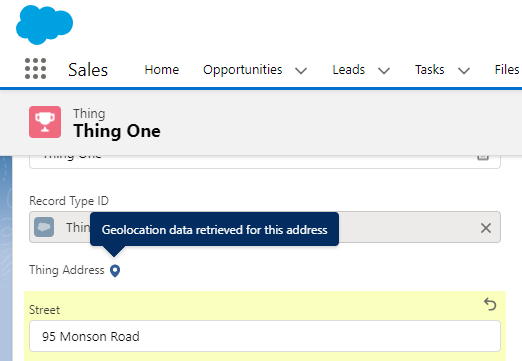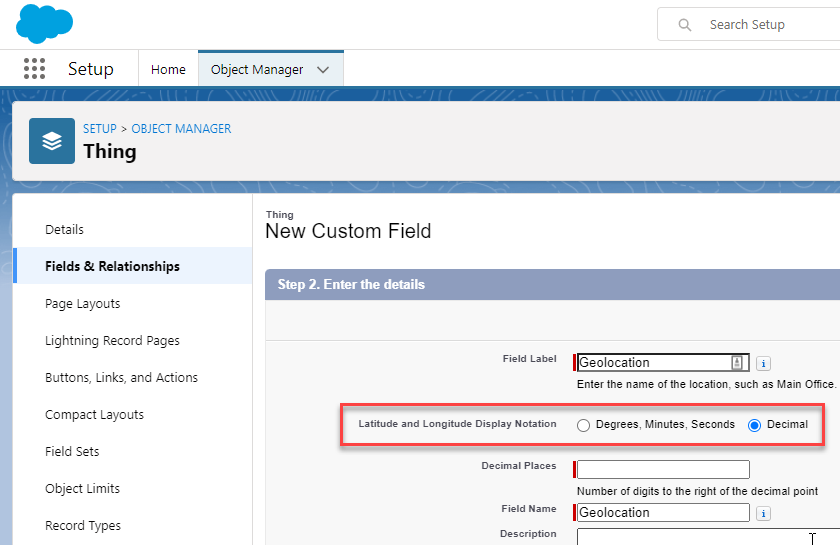Which EDQ components are supported?
If you're using the EDQ Record Detail component to validate addresses, it's possible to enrich the address with additional data from our Enrichment API. For example, you can find out a household's estimated income level or an address's geographical coordinates. Assuming you are already licensed to access this data, this is achieved by enabling the feature in EDQ Profile Settings and through configuration of Touchpoints.
Go to App Launcher and in the search box type EDQ Profile Settings, and select it.
Edit the profile for which you want to enable enrichment.
Select Address Enrichment under Other features.
Click Save.
Repeat this process for any other profiles that require access to the feature.

Click on App Launcher. Type EDQ Global Settings in the Quick Find box, and select it.
Select Touchpoints from the left-hand menu.
Click the New button found in the top right to create a new Touchpoint configuration for your Salesforce object.
Choose whether you want to create a Touchpoint for a Standard address field (including the new Custom Address Field) or a set of Custom fields used to represent an address:
Set the optional destination field for the validation status. By default the validation status is stored in a separate EDQ Log object, which happens in a trigger after the object is saved. If action needs to be taken based on the validation status before saving, then we offer the option of storing the status in a destination field on the record itself. Refer to the EDQ Log custom object guide for details on the possible status values.
Activate the optional Passive validation feature should you wish to use it.

With your address configured you can now decide which additional data you want to retrieve and which fields on your object you want this to be mapped to. This data is unique to each country, so a set of mappings must be created for each country you require.
Under the Country-level mapping heading click the New mapping set button.
On the Country level mappings page select your country and the Enrichment mappings section will appear below, allowing you to then click the New enrichment mapping button.

You can now create as many mappings as you require. For each mapping you first select from the list of possible attributes from our Enrichment API and then select a field from the Salesforce object chosen for your Touchpoint. The API attributes shown are automatically restricted to just those that work for the country selected. For a full list of attributes and their descriptions refer to our Enrichment API documentation.
Unwanted mappings can be removed using the cross icon to the right of the mapping and further new ones added using the New enrichment mapping button.
Unmapping fields which have already been populated
Once all the mappings have been configured, click the Add country mappings button to add the set of mappings for that country.
Repeat this process for other countries as required and then click Save to save your Touchpoint configuration.
Remember to save the Touchpoint
Mapped fields must be modifiable
If you mapped an attribute which you are not licensed for or which doesn't exist for the validated address, the mapped object field won't be populated when an address is returned following validation.
To make this visible to administrators for debugging purposes we utilize our package's frontend logging which appears in your browser's Developer Console. Errors will be logged at the following levels.
Default frontend log level is ERROR
When an address is validated in our EDQ Record Detail component and Enrichment mappings have been configured for the selected country, the response from our API will be stored in the mapped fields.
If a successful API response is received, the address label will be show one of three possible icons:

If you wish to map one of our latitude or longitude enrichment attributes to a custom field of type Geolocation, it must be configured with Latitude and Longitude Display Notation set to Decimal.

Within Salesforce, geocode fields are available for standard addresses on accounts, contacts and leads. In these cases, the Accuracy field only allows certain values, as detailed on this Salesforce Help page: Geocode Fields and Accuracy.
Many of our Enrichment datasets offer a geocode attribute called match_level, which specifies the accuracy of the coordinates for the specified address. The values of this attribute don't match the values Salesforce uses for its Accuracy field, so we offer two variants of the match_level attribute:
| Experian Enrichment match_level | Salesforce Geocode Accuracy |
|---|---|
| building | Address |
| street | Street |
| postal_code | Zip/Postal Code |
| country* | |
| state | State/Province |
| county | County |
| city | City |
| district | Neighborhood |
| intersection* | |
| landmark* |
* Null values will be returned where there is no Salesforce equivalent, such as country.